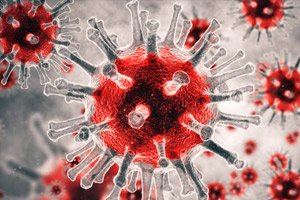
All iLive content is medically reviewed or fact checked to ensure as much factual accuracy as possible.
We have strict sourcing guidelines and only link to reputable media sites, academic research institutions and, whenever possible, medically peer reviewed studies. Note that the numbers in parentheses ([1], [2], etc.) are clickable links to these studies.
If you feel that any of our content is inaccurate, out-of-date, or otherwise questionable, please select it and press Ctrl + Enter.
One experimental injection reduces HIV levels by 1,000 times
Last reviewed: 02.07.2025
 ">
">In a recent study published in the journal Science, researchers from Oregon Health & Science University and the University of California, San Francisco found that a single injection of an experimental drug significantly reduced levels of simian immunodeficiency virus (the primate equivalent of HIV) in nonhuman primates for at least 30 weeks. The findings raise the prospect of developing a simple, long-lasting alternative to current standard HIV treatments in humans, which, while effective, require continuous drug administration.
The study found that so-called therapeutic interfering particles (TIPs) reduced HIV levels in primates by at least 1,000-fold in five of the six animals tested, and in one of them the virus became virtually undetectable.
TIPs are small, lab-created segments of the HIV virus that do not cause disease. These particles replicate so quickly that they compete with and suppress the HIV virus in an infected person. Lior Weinberger, PhD, a virologist at the University of California, San Francisco, first proposed the idea for TIPs in the early 2000s and then refined the concept through lab studies and experiments in mice.
In the study, the researchers monitored 10 non-human primates for 30 weeks, regularly analyzing blood samples and tissue from the lymph nodes, where the HIV reservoirs are concentrated in humans. The results showed that all but one of the treated animals had significantly lower levels of HIV DNA and RNA compared with the control group.
The 1,000-fold reduction in HIV levels observed by the team is three times greater than what can delay the development of AIDS in people with HIV.
Mathematical modelling based on the data from this study showed that a single injection of TIPs has the potential to consistently reduce virus levels below the threshold set by the World Health Organization for HIV transmission. This means that if the results are confirmed in human studies, a single injection of TIPs could prevent human-to-human transmission of the virus.
The study authors also did not observe recombination, a process in which two different strains of the virus infect the same cell and exchange genetic material to create a hybrid. The lack of recombination suggests that TIPs will not make HIV more difficult to manage in the future.
Weinberger, Highwood and their colleagues are conducting a follow-up study in primates to evaluate how a single injection of TIPs might work after the infection is already established and controlled by antiretroviral therapy to control the virus after therapy is stopped.
